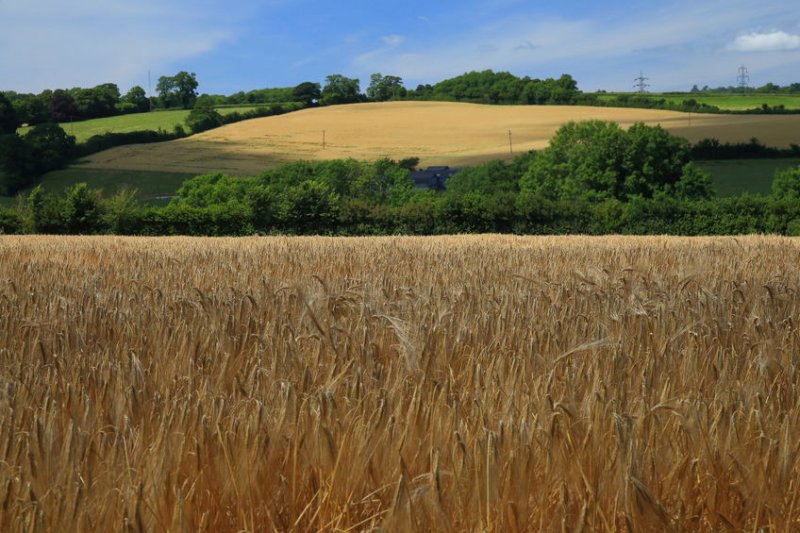
A new checklist aims to help farmers keep themselves and their workers safe through what could be one of the most challenging harvests since World War Two.
This year has brought the additional challenges of working with Covid-19 restrictions and the possibility of inexperienced staff working on farms for the first time.
Meanwhile, the recent dry conditions have combined to present a bigger challenge than normal for the UK's farmers.
Figures published by the Health and Safety Executive show 39 people were killed as a result of farming and other agriculture-related activities last year.
Overturning vehicles - or being struck by moving vehicles – caused most deaths.
NFU Mutual, which has launched the checklist, said harvest time can be 'one of the most dangerous periods' of the farming year.
Ian Jewitt, managing director of NFU Mutual Risk Management Services Ltd, which runs pre-harvest safety courses, said the checklist provides safe working information to protect farmers, staff and children.
“A major concern this year is that the pandemic means that childcare and school arrangements for many farming families have been disrupted," he said.
"Younger and school age children could be on farms during the very busy harvest period. Tragically, two children were among last year’s farming death toll."
Fire is another major threat during this year's harvest – particularly during drought-like conditions spurred on by the recent dry period.
NFU Mutual claims figures show that the cost of farm fires in the UK hit a four-year peak at £46.4m in 2018 – largely due to the year’s hot dry summer.
The increased scale of farm fires has prompted a call to farmers to check their fire prevention methods and evacuation procedures.
“To protect themselves and their workforces, we have compiled a safety checklist to help farmers plan a safe and smooth harvest," Mr Jewitt explained.
"We also offer a pre-harvest training package for farmers to deliver to their employees, with discounts available to qualifying farming union members."
What measures can I put in place before harvest?
• Put in place arrangements to enable social distancing, provision of PPE and regular hand washing to protect against Covid-19.
• Check your tractors, trailers, combines, balers and other harvest equipment, making sure they are safe, roadworthy and that you are up to date with maintenance schedules.
• Train your staff, especially new staff, to ensure they are aware of all safety hazards, emergency procedures and company and highway rules, especially in relation to harvest risks.
• Share detailed field and yard plans with staff and contractors, showing all risks and land features such as location of overhead powerlines, steep gradients, public rights of way, obscured field entrances, ditches etc.
• Remind staff to follow SAFE STOP before leaving cabs, ensuring parts have stopped before clearing blockages or carrying out maintenance, and to wear seat belts at all times, whether on highways or in fields / yards.
And measures for during harvest?
• Regularly check that everyone complies with Covid-19 safety measures and other safety rules.
• Carry out daily vehicle/ machinery safety checks, regularly clean out dust and chaff from hot spots e.g. in combines and balers.
• Continue to remind staff to always practice SAFE STOP.
• In very dry conditions, keep a bowser filled with water on hand, and be prepared to create a fire break in the event of a crop fire.
• Remind staff to keep well-hydrated, take sufficient rest breaks and monitor for fatigue, stress and mental ill health symptoms. Look after and check in on lone workers.
Measures in the yard
• Minimise non-essential visitors or contractors on site where possible and agree how you will manage social distancing etc. for those who need to be there.
• Instruct drivers to keep to safe speeds in the yard and segregate pedestrians from vehicles where possible.
• Keep children away from working areas.
• Regularly clean dust from grain dryers and ensure that staff are fully trained and know what to do if a fire breaks out.
• Make sure ladders and platforms are in good condition and a safe system of work is in operation for all work at height and other higher risk tasks (e.g. confined space entry).
